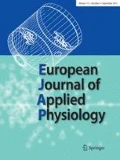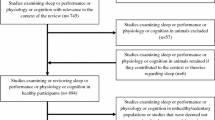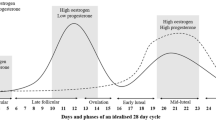Abstract
Previous studies investigating the impact of circadian rhythms on physiological variables during exercise have yielded conflicting results. The purpose of the present investigation was to examine maximal aerobic exercise performance, as well as the physiological and psychophysiological responses to exercise, at four different intervals (0800 hours, 1200 hours, 1600 hours, and 2000 hours) within the segment of the 24-h day in which strenuous physical activity is typically performed. Ten physically fit, but untrained, male university students served as subjects. The results revealed that exercise performance was unaffected by chronobiological effects. Similarly, oxygen uptake, minute ventilation and heart rate showed no time of day influences under pre-, submaximal, and maximal exercise conditions. Ratings of perceived exertion were unaffected by time of day effects during submaximal and maximal exercise. In contrast, rectal temperature exhibited a significant chronobiological rhythm under all three conditions. Under pre- and submaximal exercise conditions, significant time of day effects were noted for respiratory exchange ratio, while a significant rhythmicity of blood pressure was evident during maximal exercise. However, none of these physiological variables exhibited significant differential responses (percent change from pre-exercise values) to the exercise stimulus at any of the four time points selected for study. Conversely, resting plasma lactate levels and lactate responses to maximal exercise were found to be significantly sensitive to chronobiological influences. Absolute post-exercise plasma norepinephrine values, and norepinephrine responses to exercise (percent change from pre-exercise values), also fluctuated significantly among the time points studied. In summary, these data suggest that aerobic exercise performance does not vary during the time frame within which exercise is normally conducted, despite the fact that some important physiological responses to exercise do fluctuate within that time period.
Similar content being viewed by others
Author information
Authors and Affiliations
Additional information
Accepted: 18 August 1997
Rights and permissions
About this article
Cite this article
Deschenes, M., Sharma, J., Brittingham, K. et al. Chronobiological effects on exercise performance and selected physiological responses. Eur J Appl Physiol 77, 249–256 (1998). https://doi.org/10.1007/s004210050329
Issue Date:
DOI: https://doi.org/10.1007/s004210050329




